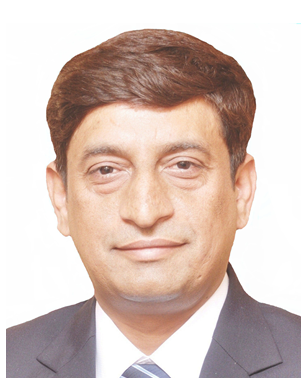
Deputy Chief Scientist & Professor
23 years of experience
Dr Mehboob-ur-Rahman has been experienced in understanding crop genomes, utilization of DNA markers for crop improvement, etc. Dr Rahman completed mega projects with the international collaborators (funded by USDA, NSF China, IAEA FAO, etc.)—explored cotton and wheat genetics and genomics for developing resilient crop varieties. Dr Rahman as a partner with Chinese collaborator re-sequenced 423 cotton varieties/lines developed in Pakistan and China. The information generated was published in various journals (two papers in Nature & one in Nature Genetics), and the total number of publications is exceeding 130 (including 27 chapters). He also edited two books on cotton. His total Impact Factor is ~338 with more than 9280 (google citation) & ~5200 (Web of science/Scopus).
Using the genomic information, he developed 17 approved cotton and wheat varieties as Principal Breeder. The cotton variety, IR-NIBGE-3701 produced 49% more yield than control in national trials (2848 kg ha-1 versus 1901 kg/ha-1 for control). This variety covered ~30% of the total cotton area, and remained popular in Punjab till 2020. This variety is under cultivation in Sindh province. The second cotton variety, IR-NIBGE-1524, produced 2668 kg ha-1 versus 1901 kg ha-1 of control, has been under cultivation in Sindh over the last two decades. Third cotton variety, IR-FH-901 got popularity (covered up to 30% of the total area) in Sindh, and still is under cultivation. After the introduction of Bt-cotton, yield in Sindh was increased from 2.1 to ~4.00 million bales. Similarly, IR-NIBGE-11, cotton variety developed through introducing wild alleles from untapped genetic resource, outyielded the whole national trial by producing 3150 kg ha-1, approved for cultivation in 2021. Efforts for developing this variety was appreciated by the funding agency (USDA) by bestowing a letter of appreciation, and was showcased in the final meeting of C-PEP in 2021. He also developed wheat variety NN-Gandum-1 which remained under cultivation for five years in Punjab. Total benefit (at farm gate value) due to cultivation of NIBGE cotton varieties till 2023 was 9.893 million bales. Total advantage was 3960 million US$ or $3.9 billion.
Dr Rahman also served as “Expert” by the FAO/IAEA Vienna for training scientists for using next-gen techniques for developing improved crop cultivars. He has also been nominated as “Eminent Cotton Scientist” in PCCC, member in Provincial Green Revolution Committee and member of board of directors of PSC. The International and National Agencies including Govt of Pakistan bestowed him with several recognitions including pride of performance-2012, ICAC Researcher of the year-2014, PAS Gold Medal in Agriculture, TWAS (under 40), etc.
I have been involved in understanding genetic circuits of several mechanisms involved in conferring biotic and abiotic stresses of cotton and wheat genomes followed by deploying DNA marker-assisted selection, mutational and genomic assays for developing resilient cotton and wheat cultivars. I developed 17 cotton and wheat varieties as principal breeder. I remained a part of several national and international cotton and wheat projects including Pak-US, Pak-China, USDA, IAEA (TC and CRP), etc. My group has made an important breakthrough in identifying new mutants followed by exposing to next generation sequencing, finding DNA markers, QTLs identification and initiated marker-assisted breeding programs, and developed cotton and wheat varieties. I have also been involved in developing mutant, NAM, etc. mapping populations of cotton and wheat. I also served twice as an IAEA expert on screening mutants using various genomic assays. Also, my group is a part of international cotton and wheat communities in the sequencing of their genomes.
https://scholar.google.com/citations?user=3mJWeu0AAAAJ